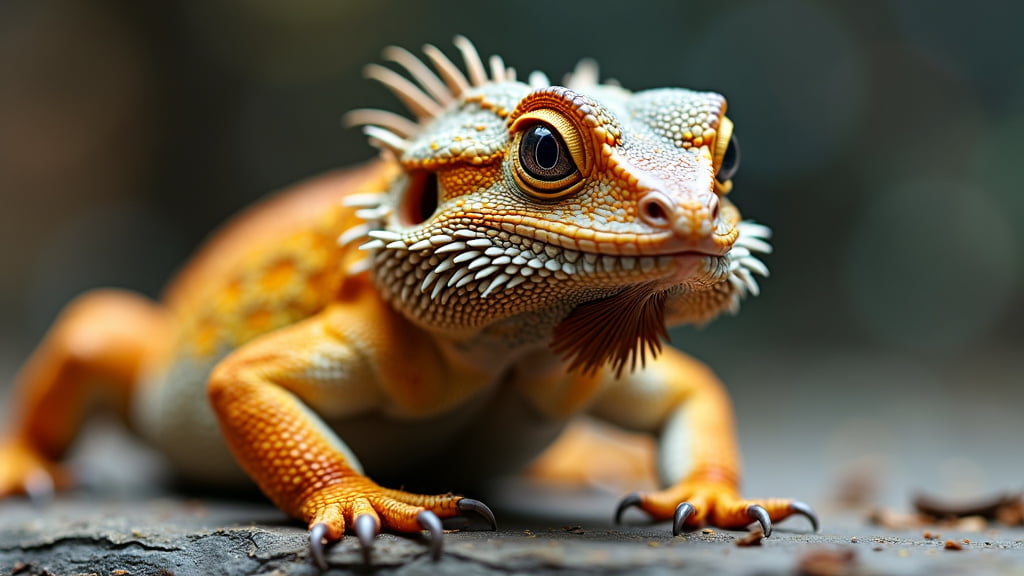Welcome to Dug’s Bugs! Today, we’re diving into the intriguing question: Can bearded dragons eat cucumber? If you’re a bearded dragon owner, you know how crucial it is to provide them with the right food to ensure their health and happiness. Let’s explore this topic together, starting from my first adventure in figuring out what to feed my scaly buddy, Sizzle. Picture this: a clueless owner, a curious dragon, and a kitchen full of questions. Spoiler alert—I learned a lot!
Brief Overview of Bearded Dragons
Before we discuss their food, let’s start with the basics. Bearded dragons, or “beardies,” hail from the arid regions of Australia. These fascinating reptiles are popular pets due to their friendly nature and relatively easy maintenance. However, understanding their dietary needs is essential to keeping them healthy and happy.
General Diet of Bearded Dragons
Optimal Diet Composition
Bearded dragons thrive on a mix of vegetables, fruits, and insects. Their dietary needs change as they grow:
- Juvenile Bearded Dragons: Approximately 80% insects and 20% vegetables.
- Adult Bearded Dragons: Around 80% vegetables and 20% insects.
Essential Nutrients
Beardies require a balanced intake of calcium, vitamins, and proteins. Ensure they have access to UVB light for vitamin D, which aids in calcium absorption. Without it, they can develop metabolic bone disease, a serious health issue.
Common Safe Foods
Here are some safe foods for your bearded dragon:
- Vegetables: Kale, collard greens, bell peppers, butternut squash.
- Fruits: Strawberries, blueberries, melons (in moderation).
- Insects: Crickets, mealworms, dubia roaches.
Sizzle loves juicy blueberries the most—he practically dances for them!
Cucumber in Bearded Dragons’ Diet
Nutritional Breakdown of Cucumber
Cucumbers are primarily composed of water, making them an excellent hydrating snack. They contain small amounts of vitamins K, C, and A, along with some potassium and magnesium. However, they offer fewer nutrients compared to other vegetables.
Health Benefits
Cucumbers can be a great source of hydration, especially in hot weather. They provide some vitamins and minerals, but should be given in moderation.
Potential Risks
Excessive consumption of cucumber can lead to diarrhoea due to its high water content. Additionally, unwashed cucumbers might contain pesticides, which can be harmful to your bearded dragon.
Moderation is Key
As with most things, moderation is crucial. Offer cucumber as a treat, in small pieces. For Sizzle, a few tiny cubes once a week work wonders. He enjoys the crunch without any digestive issues.
Preparing and Serving Cucumber to Your Bearded Dragon
Preparation Tips
Always wash cucumbers thoroughly to remove pesticides. Opting for organic cucumbers is even better. Peeling them can also help reduce potential risks.
Feeding Techniques
Cut cucumbers into small, thin pieces to prevent choking. Mix them with other safe greens to create a delicious salad for your beardie. Observe your dragon’s reaction—some might love it, while others may not be as enthusiastic.
Storing Leftovers
Store leftover cucumber slices in a sealed container in the fridge. Ensure they are fresh before feeding them to your dragon again. Stale, soggy cucumber isn’t suitable for them.
Monitoring Health and Well-being
Signs of Digestive Issues
Watch for signs such as diarrhoea, dehydration, or lethargy. These could indicate that your dragon is consuming too much cucumber or other watery vegetables.
When to See a Vet
If symptoms persist or your dragon appears unwell, consult an exotic pet vet. They can provide the best guidance for your pet’s diet and health.
Conclusion
Summary
To summarise, can bearded dragons eat cucumber? Yes, but cucumbers should be given in moderation. Their high water content can cause digestive problems if overfed.
Final Thoughts
Being a responsible pet owner involves continuous learning and observing your pet. Share your experiences, ask questions, and determine what works best for your scaly friend. Remember, balance and variety are key!
Call to Action
If you enjoyed reading this, subscribe to Dug’s Bugs for more pet care tips. Share your stories in the comments—let’s help each other become the best beardie parents we can be!
Additional Resources
FAQs
Check out our FAQs for more information on bearded dragon diets, including cucumber and other safe foods.
Supplementary Reading
We offer comprehensive care guides and research articles for those who want to learn more. For detailed information, visit this page.
Community and Support
Join forums and social media groups to engage with other bearded dragon enthusiasts. Together, we can ensure our pets are happy and healthy.
End Note: The information provided here is based on personal experiences and general advice. Always seek professional veterinary advice for specific health concerns.

